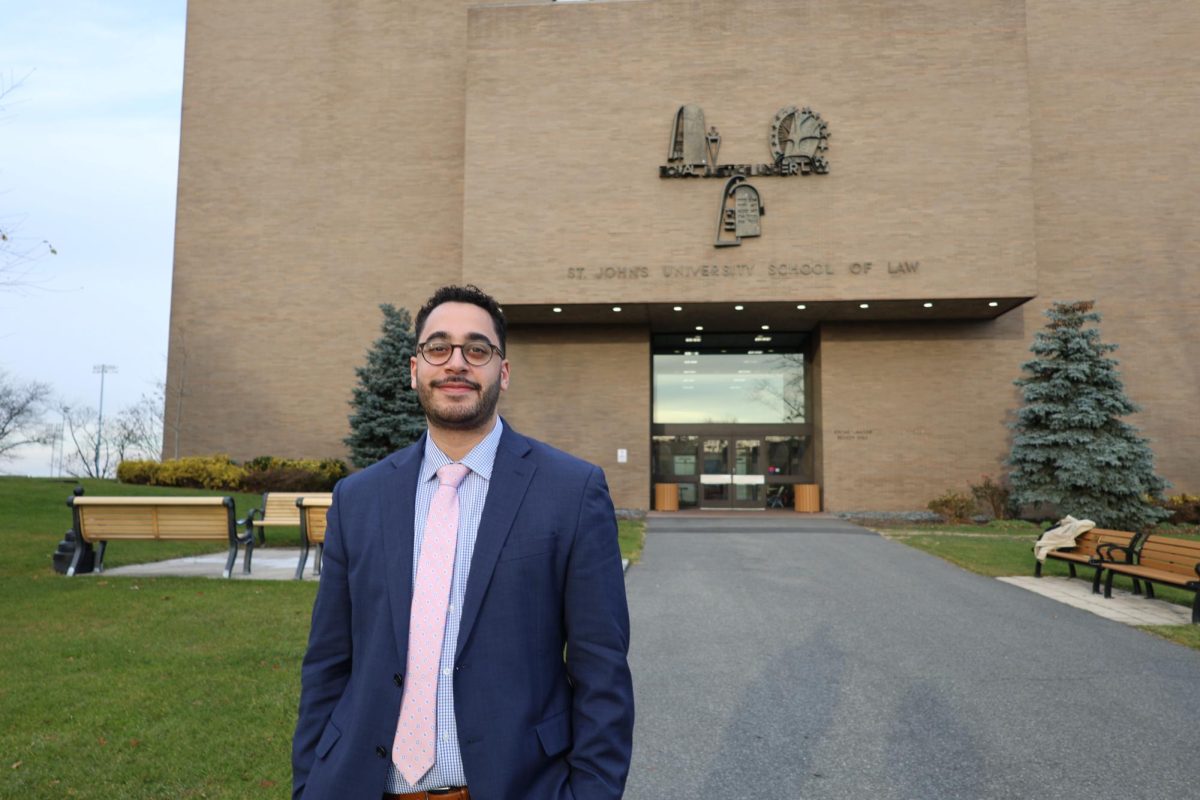Esteban Angeles was waiting in line, inching closer to the Queens County Civil Court clerk’s window, when he overheard a woman ask for an attorney who could assist her with two consumer debt cases. Turning to her, Esteban said he could help.
Along with two classmates from the Law School’s in-house Consumer Justice for the Elderly: Litigation Clinic and the Clinic’s director, Professor Ann Goldweber, Esteban was in court that morning to participate in the Volunteer Lawyer for the Day (VLFD) Consumer Debt Program. With supervision, Clinic students spend the day representing people sued for consumer debt who don’t have an attorney. They negotiate settlements with opposing counsel, get default judgments vacated and cases dismissed for lack of jurisdiction, conference with court attorneys, argue before judges, and advise clients on trial strategies. They also earn credits that help them meet the 50-hour pro bono service requirement for admission to the New York Bar.
“The VLFD program has become an important part of our curriculum and serves to enhance St. John’s Vincentian mission,” says Professor Goldweber, who directs the Law School’s clinical legal education program. “It’s an eye-opening experience for our students to see the inequities in our court system. In these cases, the debt collection companies are always represented by counsel, while the low-income defendants almost never have lawyers. Our representation is one small contribution to bridging the justice gap and leveling the playing field.”
As Esteban listened to his client and reviewed her cases, he understood the challenges she faced. He was just a teenager when his family’s landlord served his parents with an eviction notice. “Both my parents are immigrants from the Dominican Republic and couldn’t fully understand what the notice was for,” he says. “I vividly remember the worry on their faces and the sinking feeling in the pit of my stomach as I translated the letter to them from English to Spanish.”
Esteban’s high school guidance counselor helped the family find pro bono counsel and, eventually, they won their case. “The whole experience opened my eyes to the use of power to intimidate those with less knowledge of the legal system,” Esteban shares. “The attorney’s willingness to help in my family’s time of need completely altered the trajectory of my life. That spirit of generosity is something that inspired me to attend law school, and it continues to motivate me.”
Channeling that motivation, Esteban helped his client resolve her two cases favorably in court. As they parted, she handed him a note which read, in part:
It’s funny how the situations we face in life can lead us to fulfill our purpose. I’m sure there might be days where you feel drained with cases and might question if you made the right career decision. I sincerely hope you know that you are making a great impact in the lives of those you represent.
On the subway ride home after his day in court, Esteban read those words of gratitude and affirmation over and over. “It felt like all the hard work I’ve put into law school, as well as all the sacrifices my parents have made for me, were finally beginning to pay off,” he says. “On the advice of Professor Goldweber, I framed the note and will look at it any time I have doubts about my career path, or when I need a morale booster. I’ll never forget my first court appearance, or my first real legal client.”

